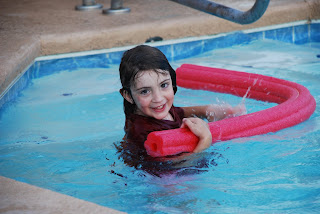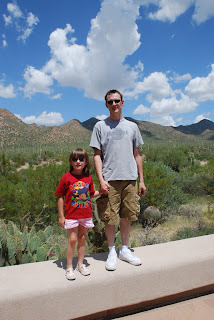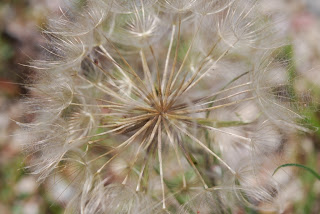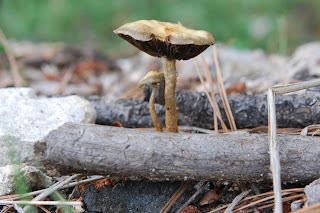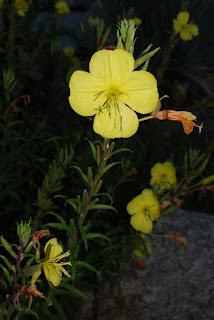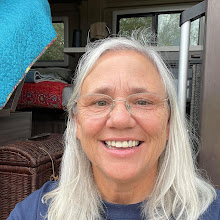Court Street Cemetery, bounded by Stone Avenue, Speedway Boulevard, Second Street and Main Avenue, was established June 1, 1875.
Around 1907 it was decided to close Court Street Cemetery and move the dead somewhere else. After the bodies have been moved then they would open the area to real estate development. In July 1907, 120 acres was purchased on North Oracle Road and the new Catholic cemetery was called Holy Hope. Just to the South, 240 acres were purchased and Evergreen Cemetery created. The only problem is, no one was in a hurry to move their loved ones to the new cemetery. Not only that, no one wanted to sign up to be buried there. The City Council banned further burials in the Court Street Cemetery in 1908.
Notices were put in the local newspapers stating that the bodies needed to be moved in 30 to 40 days. Only a small number of people saw the notices. The cost of moving their loved ones was beyond a lot of people's means. Needless to say only the wealthy was able to accomplish this task of moving their loved ones.
For years, local undertaker John Reilly oversaw exhumations from the old Court Street cemetery. His rule for relocation was to assume the dead to have been Roman Catholic if they appeared Spanish; if not, re-internment was in the Evergreen Cemetery.
No city or cemetery records exist to determine the exact numbers buried in the Old Court Street Cemetery, but Catholic burials alone numbered 4,513, according to church records. There were probably twice that number between various fraternal orders, Protestants, Jewish burials and others.
In March 1916 the council call the Court Street Cemetery abandoned and advertise for bids. Days later, 88 former Court Street lots sold for a total of $10,000.
The kicker is this, the cemetery was not "abandoned." There is still thousands of people still buried in the old Court Street Cemetery. That is why some of the residents of Tucson see dead people.
Imagine digging a posthole for a mailbox and finding some small bones. When the gentleman called the police he was told it was probably a big dog. Curiosity kills the cat, and this man kept on digging until he unearthed a jawbone. Later an adult male was excavated. He was wearing a shirt, suspenders and pants. They estimated his age between 22 - 26 years and cause of death was meningitis.
That is tame in comparison to what happened to his neighbor.
His neighbor was under his house fixing some pipes when the wet earth caved in on a rotted casket. As the story goes, the neighbor, flailing in the remains, jerked back in revulsion and knocked himself out on his floorboards. He woke up face to face with a body.
In the 1920s, 1960s, 1970s and 1990s, various construction and road-grading projects unearthed more than 100 burials in the Alameda-Stone area.
In 1950, construction and excavation behind the old Tucson Newspapers Inc. building on Stone (atop part of the old National Cemetery) unearthed complete remains of 38 individuals and partial remains of about 54 more.
In the 1950s, three burials were recovered from the 17th Street-Ninth Avenue site during sewer line work, and another three in 1995-96 during utility work there.
I believe this is the most recent grave sighting - a sinkhole opened in the city of Tucson’s right-of-way. Two coffins were present. The top one contained a child aged 3-to-5 years old at death. Buttons indicate the child was wearing a dress and that other clothing was used as a pillow and had been stuffed into the foot area of the coffin, perhaps to prevent the body from shifting as the coffin was moved. Beneath this burial was a second coffin containing a male, aged 25-to-35 years old. Clothing remains indicate he was wearing a cotton shirt, a brown wool jacket, suspenders, and pants. Surprising finds included a rubber comb and three coins (the most recent dated 1886) in his right pocket, and a change purse and jackknife in his left jacket pocket. The two coffins had nearly identical hardware and decorations, and it is believed the burials were made at the same time.
According to Homer Thiel, a project director for Desert Archaeology Inc. "There are more than seven old burial grounds in the Tucson city limits," Thiel says. He estimates 10 to 15 historic graves have been officially discovered citywide each year. "I'm pretty sure people are finding human remains and either not knowing what they are or not bothering to report them, so who knows how many are actually dug up or washed out every year?" One of the forgotten bodies belongs to "Pie" Allen, a famous Tucson mayor of the 1870s who got his nickname selling pies to the cavalry. While his headstone is at Evergreen Cemetery, his body is still somewhere in Dunbar/Spring, according to Thiel.
I cannot imagine how I would react if I was digging around in my backyard and find a body. Due to my religious/spiritual beliefs I would not feel comfortable living in a house that has been built on a cemetery that wasn't abandoned. I would be lighting candles and saying prayers. There is nothing that Tucson can do about this except rebury those that are found in an unmarked grave.
We went to Evergreen Cemetery. I will posting pictures on my website when Comcast gets here Wednesday.
Location: Tucson


















